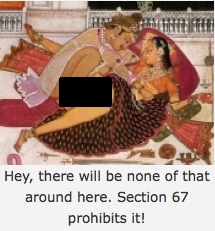September 9, 2025
Browse by Subject
- Defamation (588)
- Copyright (511)
- Legal Threat (507)
- Free Speech (411)
- Blogs (315)
- Section 230 (309)
- Anonymity (301)
- Social Media (297)
- Citizen Journalism (286)
- Newsgathering (286)
- Fair Use (280)
- Criminal (279)
- Journalism (266)
- Access to Gov't Information (242)
- Third-Party Content (239)
- Censorship (230)
- Twitter (229)
- Privacy (213)
- CMLP (211)
- Trademark (189)
- DMCA (162)
- Shield Laws (149)
- Access to Courts (148)
- Prior Restraints (120)
- FOIA (107)
- SLAPP (105)
- Cyberbullying (89)
- Elections and Politics (88)
- Legal Guide (84)
- Recording Others (83)
- User Comments or Submissions (82)
- Terms and Conditions (80)
- Publication of Private Facts (80)
- Right of Publicity (79)
- Subpoenas (78)
- Advertising (77)
- Consumer Ratings and Reviews (59)
- Intrusion (54)
- False Light (54)
- Student Speech (54)
- Gripe Sites (51)
- Congress (49)
- Hot News Misappropriation (47)
- Resources and Tools (45)
- Open Meetings (43)
- Children (42)
- Linking (41)
- Computer Fraud and Abuse Act (41)
- Obscenity (36)
- Access to Places (35)
- Business Torts (33)
- Identity (33)
- Aggregation (33)
- Trade Secrets (30)
- Trade Libel (25)
- Personal Jurisdiction (24)
- Licensing (24)
- Business Formation (23)
- Taxes (22)
- Sanctions (21)
- Employee Blogs (20)
- Domain Names (19)
- Real Estate (17)
- Retractions and Corrections (15)
- Credentials (15)
- DMLP (13)
- Cyberstalking (13)
- Reviews (11)
- Insurance (11)
- Hate Speech (11)
- Misappropriation (11)
- Establishment Clause (10)
- Government Speech (9)
- Website Design (7)
- Statute of Limitations (4)
- Science (3)
- Patent (2)
Recent Blog Posts
-
11 years 2 months ago
-
11 years 3 months ago
-
11 years 4 months ago
-
11 years 4 months ago
-
11 years 4 months ago
-
11 years 5 months ago
-
11 years 5 months ago
-
11 years 5 months ago
We are looking for contributing authors with expertise in media law, intellectual property, First Amendment, and other related fields to join us as guest bloggers. If you are interested, please contact us for more details.


 It is a good thing to want to protect children from the vulgarity of the world. Accordingly, states have adopted prohibitions on exhibiting or selling harmful material to minors. These laws make sense, in that we usually don’t want sex shops selling pornography to kids. But occasionally the legislature goes a bit insane and decides that, in order to fully protect the children, we need to criminalize or block off whole sections of the Internet.
It is a good thing to want to protect children from the vulgarity of the world. Accordingly, states have adopted prohibitions on exhibiting or selling harmful material to minors. These laws make sense, in that we usually don’t want sex shops selling pornography to kids. But occasionally the legislature goes a bit insane and decides that, in order to fully protect the children, we need to criminalize or block off whole sections of the Internet.
 Celebrity blogger
Celebrity blogger  An Indian NGO filed a petition before the Bombay High Court seeking a blanket prohibition on websites that display any "material pertaining to sex." The justification for the proposed ban was that this material "is harmful to the youth of this country in their formative years." (
An Indian NGO filed a petition before the Bombay High Court seeking a blanket prohibition on websites that display any "material pertaining to sex." The justification for the proposed ban was that this material "is harmful to the youth of this country in their formative years." (